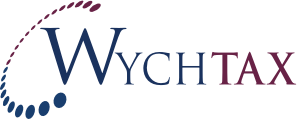When working with a CPA, it is not just about getting your taxes done.
Wait … what? You might be thinking, isn’t that the point, though?
Of course, it’s our job to do your taxes efficiently and strategically to provide the best value on your return. However, coordination between your tax decisions and big picture financial decisions produces a cohesiveness that optimizes both sides of the equation for your overall financial health.
There are a number of decisions to make at both the individual and business level that impact your financial future, help you get the most bang for you buck, and ensure you are effectively operating your business for the most value.
Benefits of different business entities
In our last blog, we talked about the differences between LLCs and S corporations, but there are a handful of legal business structures that have their advantages and disadvantages depending on the nature of the company: sole proprietorship, partnership, LLC, corporation, and nonprofit. There are also sub-entities that fall under many of these categories, so it’s important to choose an entity that works in tandem with your goals as a company.
For example, how many owners are there in your business? How do you want your net business profits to be taxed? Do you need to consider special allocations between members/partners?
All of these questions and more are to be considered when forming a business entity as they will impact your overall financial picture and the successful operation of your business.
Small business and retirement planning
The more you know about retirement plans, the more you will be able to make the most of their benefits and create the retirement life you envision.
The percentage of income you can opt to contribute to your retirement is wholly dependent on your current situation. If you are employed, you may have the option to contribute to a 401(k) that can be matched by your employer to a certain agreed upon percentage and, if possible, you should contribute enough of your paycheck in order to earn the full match rate. Employees can contribute up to $19,500 total.
If your employer does not provide this, you can contribute your money to a traditional or Roth IRA, which have smaller annual contribution limits ($6,000 for people under 50 and $7,000 for people 50+) yet provide more opportunity for investment.
Here’s the kicker: If you are a business owner, you have significantly more options for setting aside funds. You can opt for either a simplified employee pension (SEP), a SIMPLE plan, or a 401(k). Depending on where you stand in your business, you could put away as much as $60,000 if you have the cash flow to do so.
These decisions are critical when planning out your retirement so you can ensure you receive the maximum benefit possible from setting aside your hard-earned dollars. Having a good financial advisor to guide you through each option helps set you up for the most financial security possible in your retirement.
Which deductions you can take to optimize finances
Tax deductions range from the individual level to business write-offs, and it’s important to know which of them you’re able to claim on your return. By claiming certain deductions, you reduce your taxable income for the year.
There are two options for deductions: standard deduction or itemized deductions.
- The standard deduction is used by most taxpayers because it requires less paperwork and record-keeping. The standard deduction for the 2021 tax year is $12,550 for singles and married people filing separately, and $25,100 for married couples filing jointly.
- Taxpayers who decide to itemize their deductions must fill out a longer attachment to Form 1040 and must produce a list of their deductions with receipts to prove they are fair and accurate. This approach should be used by those whose total deductions for the year will be higher than the standard deduction.
If you’re itemizing, typical deductions include medical expenses, charitable contributions, mortgage interest, and state and local taxes.
Putting together a comprehensive financial strategy
All of the aspects we’ve discussed above, among others, are the pieces that create your financial strategy and help you make smarter business and retirement decisions. They allow you to effectively operate your business for the most value possible and prepare for your financial future. Without a strategic financial advisor, it can be easy to overlook some of these factors.
At Wych Tax, we do more than just your taxes. We’re an extension of your team that always has your best interest in mind and will help guide you through the complicated web of maximizing your finances. To schedule a consultation with us, reach out by phone at 970-223-0792, or email jessica@kevinshawcpa.com.






